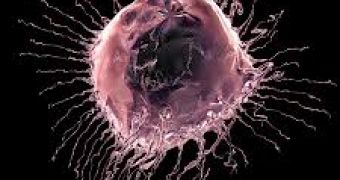This February's issue of the Journal of Cell Science witnessed the publication of a new study stating that, should one decide to toy with the proteins that cancer cells have at their disposal while developing, their growth could successfully be halted.
The team of scientists who put together this new research concerning cancer cells and ways to halt their growth all work with the University of Pittsburgh's Cancer Institute.
EurekAlert! reports that, courtesy of a grant they received from the US National Institutes of Health, these researchers were able to monitor a batch of cancer cells and see what happens when the latter find themselves deprived of a protein known to scientists as Drp1 (dynamin-related protein).
Given the fact that said protein is of utmost importance when it comes to a cell's ability to split and form new ones, it need not come as a surprise that, once the Drp1 was out of the picture, the cancer cells found themselves unable to continue growing.
Interestingly enough, some of the Drp1-deprived cells did try to continue their growth, yet the lack of this protein caused them to experience both their chromosomes being torn apart and significant stress.
Commenting on the findings of this research, Bennett Van Houten, Ph.D., made a case of how, “This is the first time anyone has explained how altering this protein at a key stage in cell reproduction can stop cancer growth.”
Furthermore, “Once we revealed this process for halting cancer cell growth by knocking out Drp1, we began looking into existing compounds that might utilize a similar mechanism.”
For the time being, the experiments carried out by these researchers are all laboratory-based. Still, it is their hope that it will not be long until they are given permission to roll out clinical trials involving human patients.
“Our hope is that this discovery will spur the development of a new type of cancer drug that targets this process and could work synergistically with existing drugs,” Bennett Van Houten wished to emphasize.

 14 DAY TRIAL //
14 DAY TRIAL //